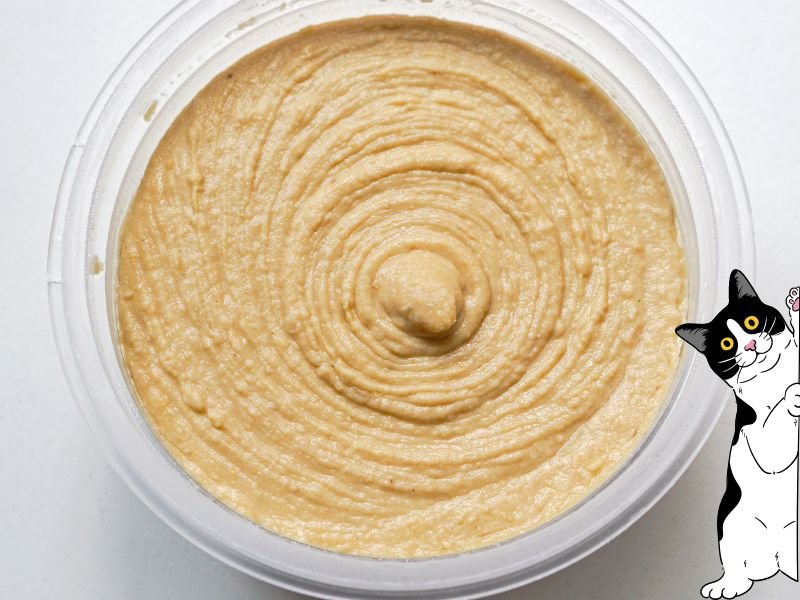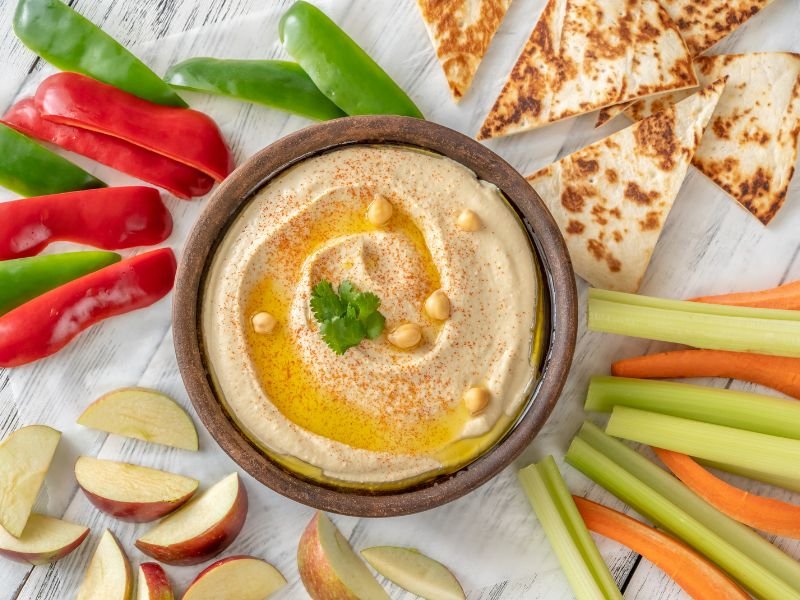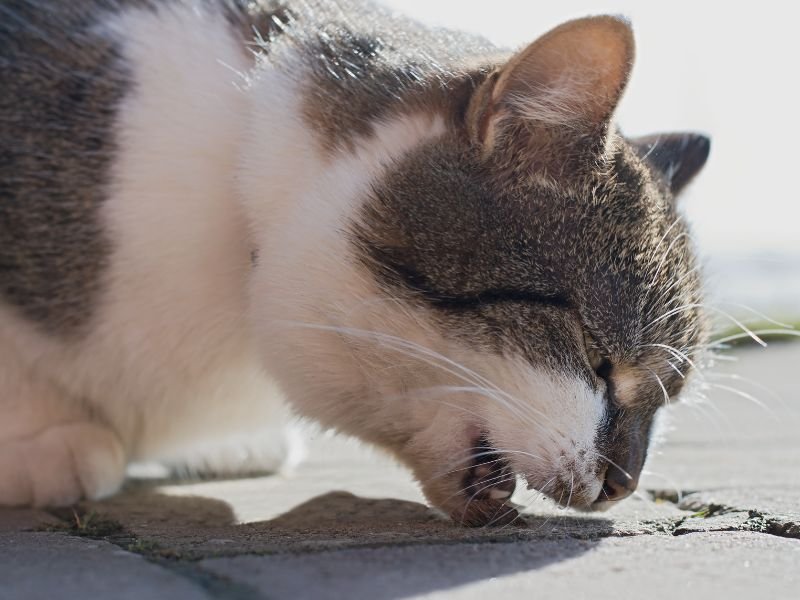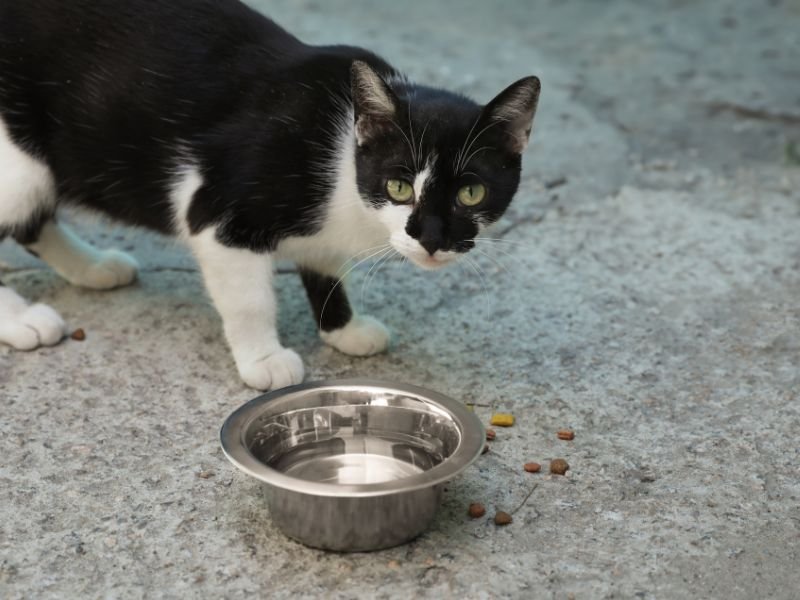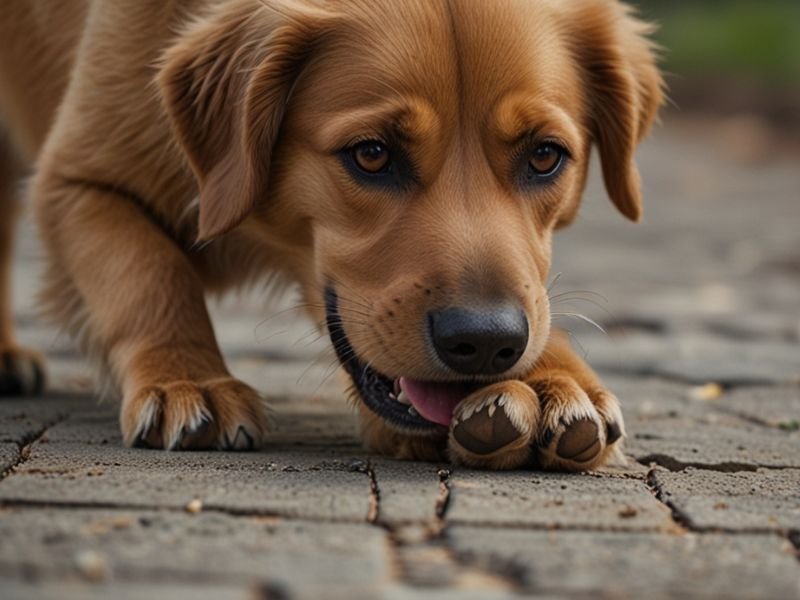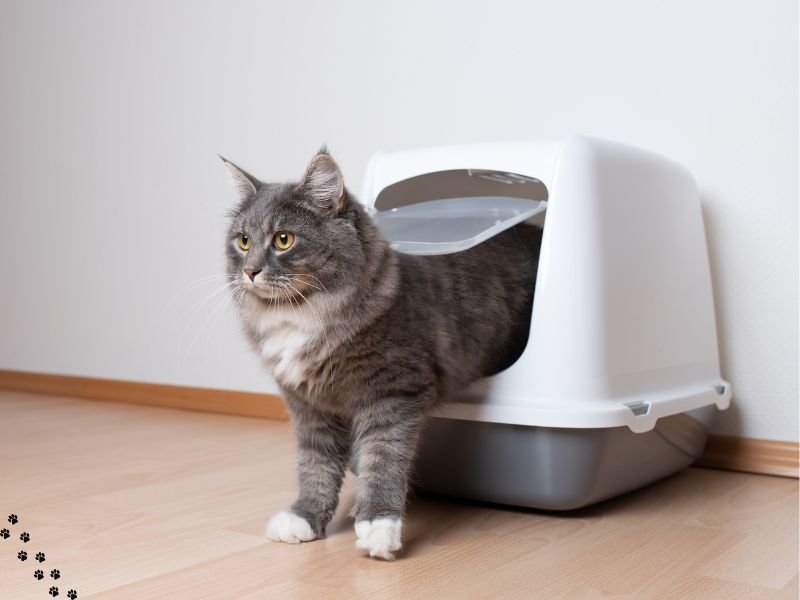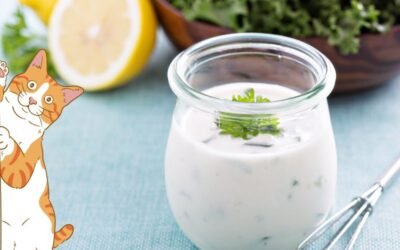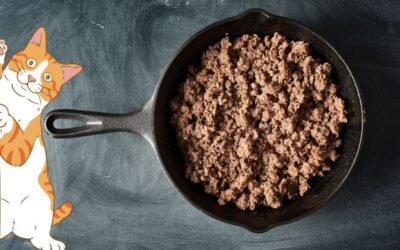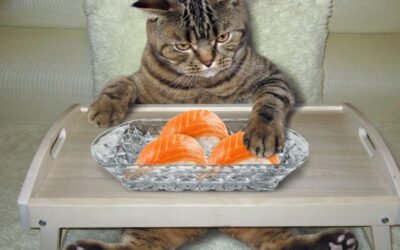Cats and hummus, two seemingly unrelated entities, both hold a special place in our hearts. We love to savor the tangy flavors of hummus, while our feline friends expertly navigate the world with sleek grace.
But have you ever wondered if these two worlds could intersect? Can cats indulge in the wonders of hummus alongside us?
In this article, we will explore the tantalizing question: Can cats eat hummus?
Join us as we delve into the world of feline nutrition and unearth the truth behind this intriguing culinary curiosity.
Table of Contents
- Understanding the Nutritional Benefits and Risks of Hummus for Cats
- Can Cats Safely Consume Hummus as a Treat?
- The Impact of Hummus on Feline Digestion and Gastrointestinal Health
- Healthy and Safe Alternatives to Hummus for Cats
- What to Do if Your Feline Friend Accidentally Ingests Hummus: Risks and Precautions
- Guidelines for Responsible Pet Ownership: Feeding Your Cat a Balanced Diet without Hummus
- FAQs About Can Cats Eat Hummus
- Conclusion
Understanding the Nutritional Benefits and Risks of Hummus for Cats
Hummus, a popular Middle Eastern spread made from mashed chickpeas, olive oil, tahini, and various spices, has gained popularity among humans for its taste and nutritional value.
However, when it comes to our feline companions, it’s crucial to understand both the potential benefits and risks associated with feeding them hummus.
Nutritional Benefits
While cats are obligate carnivores, meaning their diet primarily consists of meat, they can occasionally derive some benefits from plant-based foods. Chickpeas, the key ingredient in hummus, are a good source of protein and dietary fiber.
Protein plays a vital role in maintaining muscle mass and supporting various bodily functions, while fiber aids in digestion and promotes healthy bowel movements.
Additionally, hummus contains essential minerals such as iron, magnesium, and potassium, which are necessary for proper cellular function, muscle contraction, and maintaining a healthy immune system.
These nutrients can contribute to a well-rounded diet for our feline friends.
Potential Risks
Although hummus may offer some nutritional benefits, it’s important to recognize the potential risks it poses for cats.
One of the primary concerns is garlic and onion powder, which are commonly added to hummus recipes.
Both of these ingredients belong to the Allium family and can be toxic to cats, leading to digestive disturbances, anemia, and even more severe health issues.
Additionally, hummus often contains high amounts of salt and spices like cumin and paprika, which can cause gastrointestinal upset in cats.
Their sensitive digestive systems may react negatively to these ingredients, resulting in vomiting or diarrhea.
Furthermore, the high-fat content of hummus, particularly the presence of olive oil and tahini, may lead to weight gain and obesity if given in excessive amounts.
Overall, while hummus can offer some nutritional benefits, the potential risks associated with its ingredients make it a less suitable choice for feline consumption.
It’s always best to consult with a veterinarian before introducing any new food into your cat’s diet to ensure its safety and well-being.
Note: The information provided in this article is for informational purposes only and should not substitute professional veterinary advice. Always consult with a qualified veterinarian before making any changes to your cat’s diet or feeding routine.
Can Cats Safely Consume Hummus as a Treat?
Understanding a cat’s dietary needs is crucial before deciding whether hummus can be safely included in their treat options. While hummus is a popular and nutritious snack for humans, it’s important to consider whether it offers the same benefits for our feline friends.
Cats are obligate carnivores, which means their nutritional requirements primarily consist of meat-based proteins. Their digestive system is tailor-made for breaking down and metabolizing animal products, rather than plant-based foods like hummus.
Cats lack the necessary enzymes to effectively digest many plant-based foods, including legumes and chickpeas – the main ingredients in hummus. These ingredients can be difficult for cats to process, potentially leading to digestive issues such as excessive gas or diarrhea.
Moreover, some cats may be allergic to certain components of hummus, such as garlic or garlic powder, which can cause gastrointestinal distress or even more severe allergic reactions.
While a small taste of hummus might not harm your cat, it’s generally best to avoid offering it to them as a treat. Feeding cats an appropriate, balanced diet that meets their unique nutritional requirements is essential for their overall health and well-being.
If you are looking for safe treatment options to indulge your feline companion, there are healthier alternatives that can offer both satisfaction and nutrition.
It’s always recommended to consult with your veterinarian about what treats are safe for your cat.
They can provide personalized advice based on your cat’s specific needs, taking into account factors such as age, weight, and any existing health conditions.
Your veterinarian can also recommend alternatives that ensure your cat receives appropriate nutrients without compromising their digestive system or overall health.
Remember, responsible pet owners prioritize their cat’s well-being and make informed decisions regarding their diet and treats.
The Impact of Hummus on Feline Digestion and Gastrointestinal Health
When it comes to considering whether cats can eat hummus, it is essential to understand how it can affect their digestion and gastrointestinal health. While hummus might be a tasty and nutritious snack for humans, it may not be suitable for our feline friends.
1. Intolerance to Garlic and Onions
Hummus typically contains ingredients like garlic and onions, which can be toxic to cats. These foods can cause damage to a cat’s red blood cells and could lead to anemia. Even a small amount of hummus can pose a significant risk to cats due to their sensitivity to these ingredients.
2. High Fat Content
Another concern is that hummus is relatively high in fat. While fat is an essential part of a cat’s diet, excessive fat intake can lead to digestive upset and even pancreatitis. It’s crucial to maintain a balanced and controlled diet for cats to avoid any potential health issues.
3. Potential for Digestive Upset
Cats have delicate digestive systems, and introducing new foods can often lead to gastrointestinal disturbances. Hummus contains various ingredient combinations, such as spices, sesame seeds, or lemon juice, which might not be well-tolerated by cats. These ingredients can cause vomiting, diarrhea, or stomach discomfort.
Given the potential risks involved, it is best to avoid feeding hummus to your cat altogether. While the occasional lick or small nibble may not cause immediate harm, it’s better to err on the side of caution and prioritize foods that are known to be safe and beneficial for feline consumption.
Healthy and Safe Alternatives to Hummus for Cats
In this section, we will discuss some alternative snacks that are both healthy and safe for cats, ensuring they receive the necessary nutrients without the possible risks associated with hummus consumption.
Lean Meat Treats
One great alternative to hummus for cats is lean meat treats. Cats are obligate carnivores, meaning they require a high-protein diet.
Providing them with lean meat treats such as cooked chicken or turkey can be a delicious and nutritious option.
Make sure to remove any bones, seasoning, or excessive fat before offering it to your cat. You can cut the meat into small, bite-sized pieces that your feline friend can easily consume.
Important note: Avoid giving cats raw meat as it may contain harmful bacteria and parasites. Always cook the meat thoroughly to eliminate any potential risks.
Cat-Specific Treats
There are numerous commercially available cat-specific treats that are formulated to meet feline nutritional needs. These treats come in various flavors and textures, including crunchy, chewy, and soft options to cater to your cat’s preference. Look for treats that are specifically designed for cats, ensuring they are free from any ingredients that could be harmful to them.
Tip: When introducing new treats to your cat, start with a small amount and observe their reaction. Some cats may have dietary sensitivities or allergies, so it’s important to monitor their response and consult with your veterinarian if any concerns arise.
Remember: Treats should be given in moderation and should never replace a balanced and complete diet that meets your cat’s nutritional requirements.
By exploring these healthy and safe alternatives, you can provide your feline companion with satisfying snacks that not only taste great but also contribute to their overall health and well-being.
What to Do if Your Feline Friend Accidentally Ingests Hummus: Risks and Precautions
If your curious cat manages to sneak a taste of hummus, it’s important to take immediate action to ensure its well-being. While hummus may be a safe and nutritious food for humans, it can pose several risks to feline health. Here are a few steps to follow and precautions to consider if your cat accidentally ingests hummus.
1. Assess the Situation
First, determine the amount of hummus your cat consumed and how long ago. If it was a small lick or a tiny portion, the risk may be minimal. However, if your cat has ingested a significant amount, it’s crucial to monitor for any adverse symptoms or reactions.
2. Watch for Potential Symptoms
Cats may experience digestive issues, such as stomach upset, vomiting, or diarrhea, after consuming hummus. Keep a close eye on your feline friend for the next 24-48 hours and contact your veterinarian if any concerning symptoms arise.
3. Hydration is Key
Ensure your cat stays hydrated by providing them with fresh water at all times. This will help flush out any potential toxins and aid in maintaining their overall well-being.
4. Consult with a Veterinarian
It’s always a good idea to contact your veterinarian for guidance specific to your cat’s health situation. They can evaluate your cat’s medical history, and symptoms, and offer advice on how to proceed. Based on the quantity of hummus consumed and your cat’s individual health, they may recommend monitoring at home or booking an appointment for further examination.
5. Prevent Future Accidents
To avoid future mishaps, it’s crucial to keep potentially harmful foods, including hummus, out of your cat’s reach. Store hummus securely in containers with tight-fitting lids or refrigerate it promptly to prevent any tempting smells.
Remember, as a responsible pet owner, it’s essential to understand that some human foods can be harmful or even toxic to cats.
While hummus may seem like an innocent snack, it’s best to stick to a balanced feline diet recommended by your veterinarian to ensure your cat’s optimal health and well-being.
Guidelines for Responsible Pet Ownership: Feeding Your Cat a Balanced Diet without Hummus
Feeding your cat a balanced diet is a vital aspect of responsible pet ownership. While it might be tempting to share some of your favorite foods, it’s essential to understand that certain human foods can be harmful to cats.
Despite its popularity and health benefits for humans, it’s best to avoid feeding your feline friend hummus.
Here are some guidelines to ensure your cat’s diet remains balanced and nutritious without the inclusion of hummus.
Stick to Feline-Friendly Foods
Cats are obligate carnivores, meaning their bodies are designed to thrive on a diet rich in animal protein. Therefore, their primary source of nutrition should come from high-quality commercial cat food that meets their specific nutritional needs.
Look for cat food that lists meat as the first ingredient, providing the necessary protein, vitamins, and minerals for a healthy feline diet.
Avoid Sharing Table Scraps
While it can be tempting to share a bite of your meal with your fur baby, it’s important to avoid doing so.
Many human foods, including hummus, contain ingredients that can be toxic or detrimental to a cat’s health.
Keep your cat’s diet separate from your own, and discourage family and guests from feeding your cat anything other than their designated cat food.
Offer Cat-Safe Treats
Instead of sharing hummus or other human foods, consider providing your cat with cat-specific treats that are formulated to meet their dietary needs.
These treats are designed to be both tasty and nutritious, offering a safe alternative to satisfy your cat’s cravings for a special treat without compromising their health.
Consult with Your Veterinarian
Every cat is unique, and their dietary needs may vary depending on factors such as age, breed, and any underlying health conditions.
To ensure your cat is receiving the best nutrition possible, consult with your veterinarian.
They can provide personalized advice on nutrition, recommend specific cat food brands, and guide you in maintaining a balanced diet tailored to your cat’s individual needs.
Remember, providing your cat with a balanced and nutritious diet is crucial for their overall health and well-being.
While it may seem harmless to share a small portion of hummus with your feline companion, it’s always best to err on the side of caution and avoid feeding them human foods altogether.
By following these guidelines, you can ensure your cat receives the nutrition they need to live a long and healthy life.
FAQs About Can Cats Eat Hummus
Can cats eat hummus?
Cats should not consume hummus because it contains certain ingredients that may be harmful to them, such as garlic and onion. These ingredients can cause digestive upset and even more serious health issues in felines.
What happens if a cat eats hummus?
If a cat eats hummus, it may experience gastrointestinal distress, including vomiting and diarrhea. The presence of garlic and onion in hummus can be toxic to cats and could potentially lead to anemia if consumed in large quantities.
Is hummus toxic to cats?
While hummus is not highly toxic to cats, it is not a suitable food for them either. The ingredients used to make hummus, such as garlic and onion, can be harmful to felines. It is best to avoid feeding hummus to your cat.
Can cats have chickpeas?
In moderation, some cats might be able to tolerate small amounts of cooked chickpeas. However, it is essential to ensure that the chickpeas are plain, fully cooked, and served on rare occasions. Incorporating chickpeas into a cat’s diet should always be done under the guidance of a veterinarian.
What human foods can cats eat?
Some human foods that cats can safely consume in small amounts include plain cooked chicken, turkey, and fish. However, it is crucial to avoid seasoning, sauces, and any potentially toxic ingredients, and always consult with a veterinarian before introducing new foods to your cat.
Conclusion
In conclusion, cats should not eat hummus as it contains ingredients like garlic and onion that are harmful to them.
While hummus may not be highly toxic to cats, it is best to avoid feeding it to them due to the potential for gastrointestinal issues and other health complications.
It is always safer to stick to a balanced feline diet recommended by a veterinarian.

